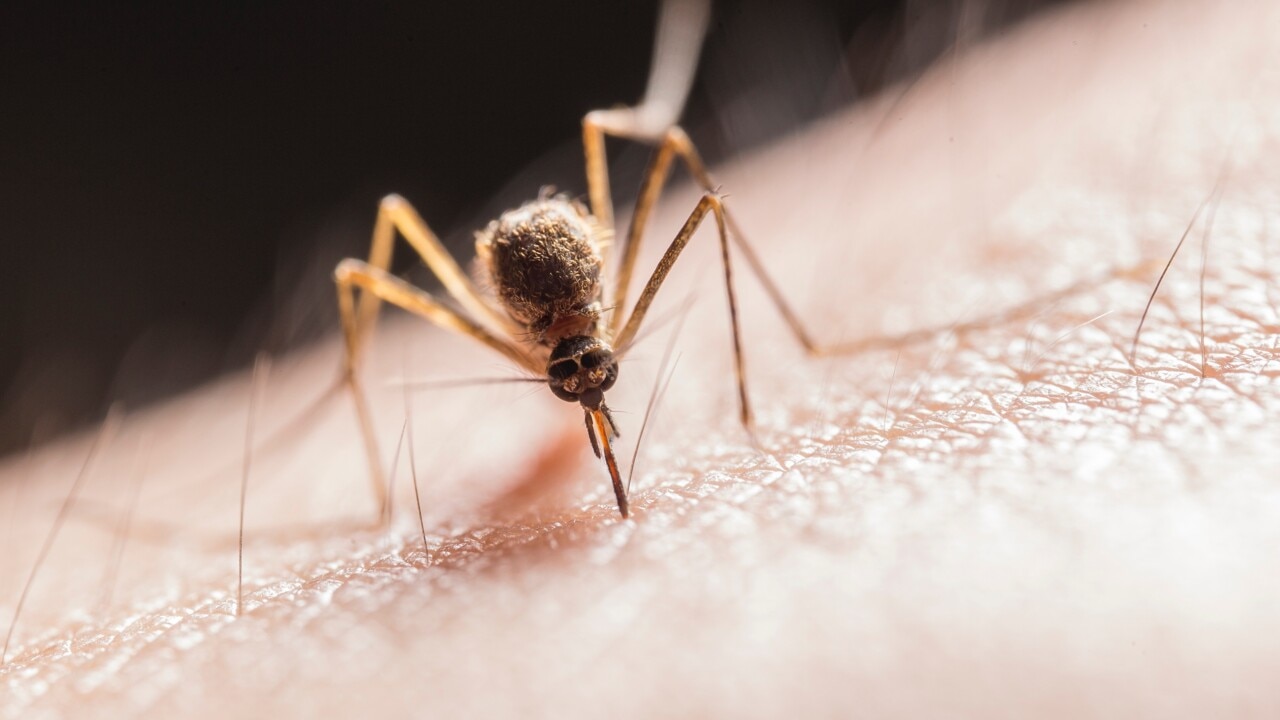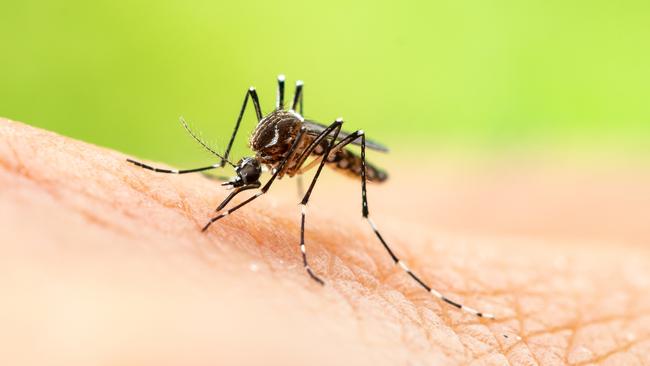Everything you need to know about Japanese encephalitis in NSW
A leading infectious disease expert has called for calm in the wake of a rise in mosquito-borne Japanese encephalitis (JE) cases in NSW, saying the disease is unlikely to reach the city and multiply like Covid-19. Here’s all you need to know.

NSW
Don't miss out on the headlines from NSW. Followed categories will be added to My News.
A leading infectious disease expert has called for calm in the wake of a rise in mosquito-borne Japanese encephalitis (JE) cases in NSW, saying the disease is unlikely to reach the city and multiply like Covid-19.
NSW Health authorities are urging residents to avoid getting bitten by mosquitoes after the state recorded its fourth case of the virus on Thursday and first death on Wednesday in Griffith.
A fifth case was confirmed on Friday afternoon, of a man in his 60s from Goulburn. Investigations into the location of his exposure are underway.
The cases have all been linked to commercial piggeries in NSW, Qld, Victoria and South Australia, with the disease spreading from animals like pigs to mosquitoes and then to humans through mosquito bites. It cannot spread from human-to-human contact like Covid-19.

The virus has been present in Northern Australia for decades and was last detected in humans in the 1990s, however it has never been recorded in states further south until now, with experts believing the wet weather has contributed to the spread.
Infectious diseases physician and microbiologist Professor Collignon said the risk of the disease was greatest to people living in regional areas near pig farms or camping or trekking near wild pigs.
“This is not something I would panic over. We need to be concerned and alert. But I would not panic, particularly if you’re living in a city,” he said.
“The people who need to take more care of people who go camping along the rivers in the countryside and particularly people who live in or within a few kilometres of a pig farm.”
He did, however, warn that flood-ravaged communities could be at greater risk of contracting the disease because of increased mosquito populations, particularly if they live near animals like pigs.
“Whenever you’ve got more water around, you’ll have more mosquitoes and therefore a bigger chance that any virus can spread by mosquitoes,” he said.
Professor Collignon said that in Asia, where the disease originated, JE has been mainly a “disease of the countryside,” meaning it is unlikely to spread into the cities and into the thousands in the way that Covid-19 did.
Less than one per cent of people infected will experience symptoms and only one in 250 will experience severe disease, which includes headache, fever, disorientation, inflammation of the brain, tremors, coma, seziures and even death.
Children younger than five and the elderly are the most at risk of serious disease and one in three people with severe infection will die from the disease.
Despite the low risk, Professor Collignon said even city folk should take measures to prevent being bitten such as wearing long sleeves and using mosquito repellant, which will also help curb the spread.
“You should avoid mosquito bites for lots of reasons including the risk of other diseases like Ross River,” he said.
“The fact that we’ve found a number of people with severe disease also implies that there’s more cases out there. What we don’t want is for it to become bigger.”
There is a vaccine to prevent the disease, with the Federal Government confirming there is enough to supply high-risk groups. Professor Collignon said the vaccine would only be necessary for those living or working near pigs.
Victoria on Wednesday announced they would vaccinate high-risk communities, such as those who work with pigs, along the border against the virus.




